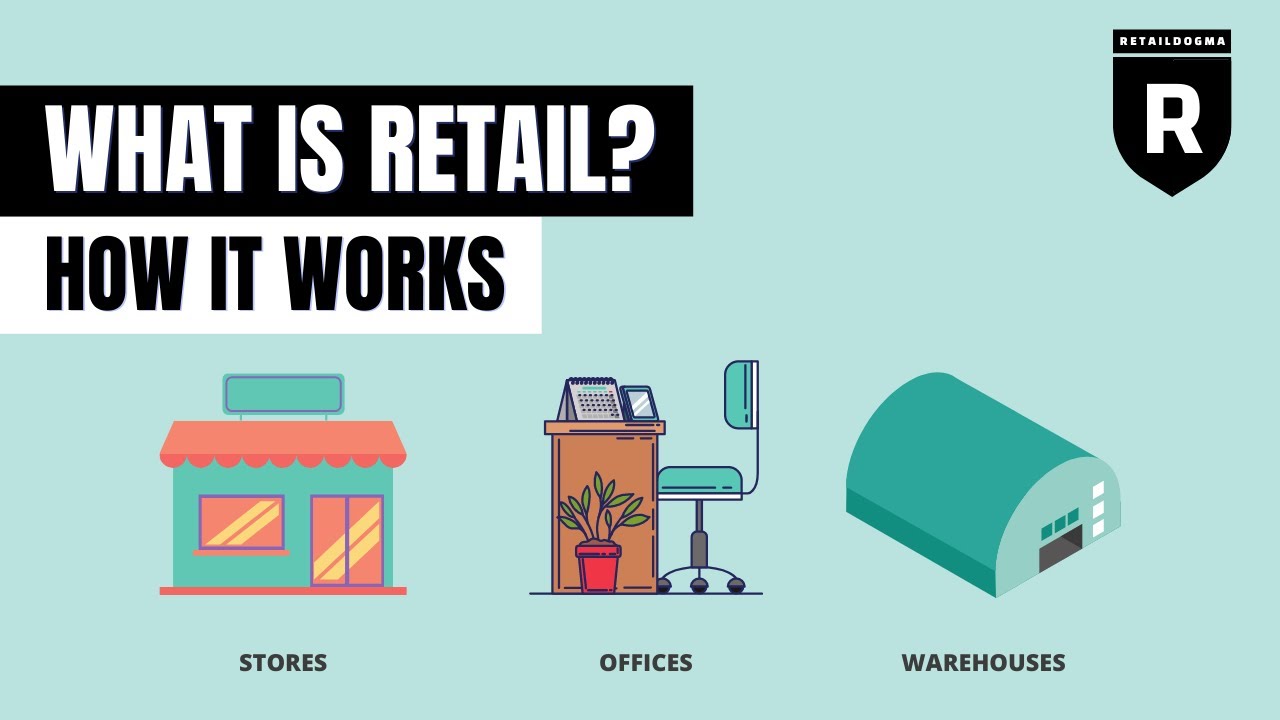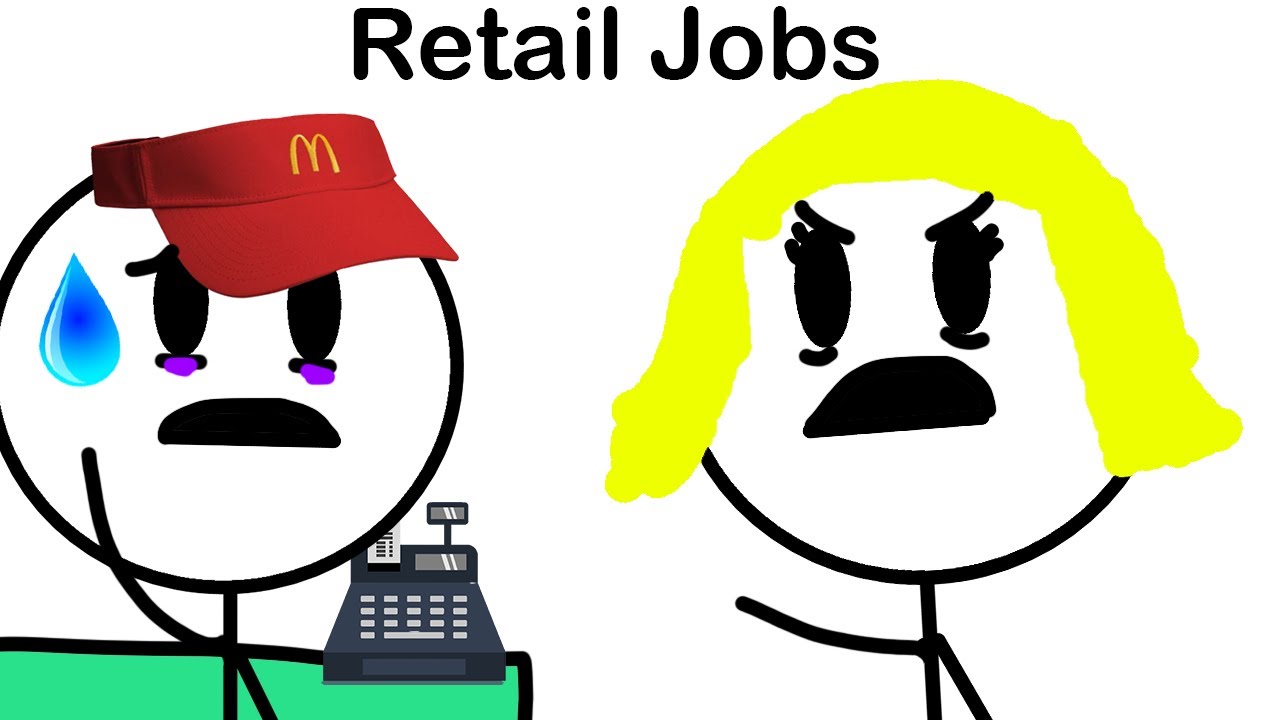When it comes to choosing a careerpath, department and specialty retail stores may not always be the first option that comes to mind. In this article, we will explore whether is department/specialty retail stores a good career path. However, these establishments offer a myriad of opportunities for individuals seeking a fulfilling and stable career. From diverse job prospects to the development of transferable skills, there are several advantages to pursuing a career in this field.
What Are Department/Specialty Retail Stores?
Department and specialty retail stores are types of businesses that focus on selling various products to consumers. Here's an explanation of each:
Department Stores
Department stores are large retail establishments that offer a wide range of merchandise across multiple categories. They typically have separate departments or sections dedicated to clothing, accessories, home goods, electronics, cosmetics, and more. Examples of department stores include Macy's, Nordstrom, Bloomingdale's, and Target. These stores aim to provide a one-stop shopping experience for customers by offering a diverse selection of products under one roof.
Specialty Stores
Specialty stores, also known as niche stores, focus on a specific product category or cater to a particular market segment. These stores often offer a more curated and specialized selection of products within their chosen niche. Examples of specialty stores include Apple (specializing in technology and electronics), Sephora (specializing in cosmetics and beauty products), and Barnes & Noble (specializing in books and related items). Specialty stores typically have a deep understanding of their chosen product category and cater to customers with specific interests or needs.
Both department stores and specialty stores play significant roles in the retail industry, albeit with different approaches. Department stores provide a broader range of products, while specialty stores excel in offering expertise and a specialized shopping experience within their chosen niche.
What Is The Highest Paying Job Department/Specialty Retail Stores?
In department and specialty retail stores, the highest-paying job positions often include roles at the managerial level. Here are a few examples of high-paying positions within these stores:
- Retail Store Manager -Store managers are responsible for overseeing the daily operations of a retail store. They handle tasks such as staff management, inventory control, customer service, and sales performance. Store managers often earn higher salaries due to the level of responsibility and leadershiprequired for the role.
- Regional or District Manager -Regional or district managers oversee multiple store locations within a specific geographic area. They are responsible for ensuring that each store meets sales targets, maintains consistent operational standards, and implements company policies and strategies. These managerial positions involve a higher level of responsibility and often come with higher salaries.
- Buyer or Merchandise Manager -Buyers or merchandise managers are responsible for selecting and purchasing inventory for the store. They analyze market trends, negotiate with suppliers, and make strategic decisions to ensure the store carries the right products to meet customer demands. These positions require a strong understanding of the industry and often come with higher salaries due to the critical role they play in driving sales and profitability.
- Visual MerchandisingManager -Visual merchandising managers are responsible for creating visually appealing and enticing displays within the store. They utilize their creative skills to arrange products, create eye-catching visuals, and optimize the store layout to attract customers and enhance the overall shopping experience. Visual merchandising managers often earn higher salaries due to their specialized skills and the impact they have on driving sales and brand image.
Is Department/Specialty Retail Stores A Good Career Path?

Retail is Careers
Determining whether department or specialty retail stores are a good career path depends on individual preferences, goals, and circumstances. Here are some factors to consider when evaluating this career path:
- Job Opportunities -Department and specialty retail stores offer a diverse range of job opportunities, from entry-level positions to management roles. This variety allows individuals to explore different areas of interest and potentially progress within the industry.
- Transferable Skills -Working in retail stores can develop valuable transferable skills such as customer service, communication, problem-solving, and teamwork. These skills can be beneficial in various industries and can open doors to future career opportunities.
- Career Progression -Many retail stores provide clear career progression paths, allowing motivated individuals to advance from entry-level positions to supervisory or management roles. Additionally, larger retailers often offer training programs and professional development opportunities to enhance skills and climb the career ladder within the company.
- Exposure to Trends and Fashion -Specialty retail stores, in particular, offer exposure to the latest trends and styles within their niche. For individuals passionate about fashion or specific product categories, working in these stores can be an opportunity to stay updated and potentially lead to future career paths within the industry.
- Interaction with Diverse Customers -Retail stores provide the chance to interact with customers from diverse backgrounds, cultures, and perspectives. This exposure can enhance interpersonal skills, cultural sensitivity, and empathy, contributing to personal growth and a broader worldview.
However, it's important to consider potential challenges associated with a career in retail, such as irregular working hours, customer service demands, and physical demands. These factors may impact work-life balance and require individuals to adapt to the demands of the job.
Benefits Of Working In Department/Specialty Retail Stores
Working in department or specialty retail stores offers several benefits that can contribute to a fulfilling and rewarding career. Here are some key advantages:
- Diverse Job Opportunities -Retail stores provide a wide range of job opportunities, catering to different skills and interests. From sales associates to visual merchandisers, store managers to buyers, there are various roles available, allowing individuals to explore different areas and find their niche within the retail industry.
- Development of Transferable Skills -Working in retail stores helps individuals develop essential transferable skills that are valuable in various professional settings. These skills include customer service, communication, problem-solving, teamwork, time management, and adaptability. Such skills can be utilized in other industries, opening up possibilities for career growth beyond the retail sector.
- Interaction with People - Retail jobs involve regular interaction with customers, providing an opportunity to build strong interpersonal skills and develop a customer-centric mindset. These interactions enhance communication abilities, empathy, and the ability to handle diverse personalities, which are valuable skills in both personal and professional relationships.
- Product and Industry Knowledge -Retail employees gain in-depth knowledge about the products they sell and the industry they operate in. This knowledge can be valuable for individuals who have a genuine interest in the products they work with, as it allows them to stay updated with the latest trends, technologies, and advancements in their field.
- Fast-Paced and Dynamic Environment -Retail stores operate in a fast-paced environment that constantly evolves to meet customer demands. This dynamic setting keeps employees engaged and can provide a sense of excitement and variety in their work. The constantly changing nature of the retail industry ensures that no two days are the same.
- Employee Discounts and Perks -Many retail stores offer employee discounts and perks, allowing employees to enjoy savings on the products they sell. This can be particularly advantageous for individuals who have a personal interest in the store's offerings or wish to enjoy the benefits of their work beyond their regular compensation.
- Potential for Advancement -Retail stores often provide opportunities for career progression. Dedicated and high-performing individuals can move up the ranks, starting from entry-level positions and advancing to supervisory, management, or corporate roles. Retail companies may also offer training programs, mentorship, and professional development opportunities to support employees in their growth within the organization.
How Much Can You Make From Department/Specialty Retail Stores?

What is Retail? | How Retailers Make Money | Retail Dogma
The earnings in the department and specialty retail stores can vary widely depending on factors such as the specific job role, level of experience, location, and the size and reputation of the store. Here's a general overview of the salary range for different positions:
- Entry-level Positions -Entry-level positions in retail stores, such as sales associates or cashier roles, often pay an hourly wage. In the United States, the median hourly wage for retail salespersons was around $12.23 as of May 2020, according to the U.S. Bureau of Labor Statistics. However, it's important to note that wages can vary depending on the region and local labor market conditions.
- Supervisory and Management Roles - Supervisory and management positions in retail stores generally earn higher salaries due to the added responsibilities and leadership required. The salaries for these roles can range significantly based on factors such as the size of the store, location, and the level of experience and expertise of the individual. Store managers, regional managers, and merchandising managers can earn salaries in the range of $40,000 to $100,000 or more per year, depending on the specific circumstances.
- Corporate and Executive Positions -Retail companies also have corporate offices and executive positions that involve overseeing multiple stores or the entire company. Salaries for these roles can be significantly higher, especially for top-level executives. Compensation for corporate and executive positions can range from several hundred thousand dollars to millions of dollars per year, depending on the company's size and financial success.
It's important to remember that these salary ranges are general estimates and can vary based on individual factors and the specific circumstances of each job. Additionally, some retail companies may offer additional benefits, bonuses, or commission structures that can impact overall compensation.
What Education And Skills Do You Need To Get In Department/Specialty Retail Stores?
Education requirements for entry-level positions in department and specialty retail stores are typically minimal, as they primarily value relevant skills and experience. However, certain positions may have specific educational requirements or preferred qualifications. Here are some key considerations regarding education and skills:
Education Requirements
Most entry-level positions in retail stores do not require a specific degree or formal education. However, a high school diploma or equivalent is usually expected. For management or corporate roles, a bachelor's degree in business, retail management, marketing, or a related field can be beneficial and may increase the chances of career advancement.
Relevant Skills And Qualifications
While formal education is not the primary focus, retail stores often seek candidates with relevant skills and qualifications. These may include:
- Customer Service -Strong customer service skills are essential for retail positions. This includes excellent communication, active listening, problem-solving, and interpersonal skills to provide exceptional service and address customer inquiries and concerns effectively.
- Sales and Product Knowledge -Having a basic understanding of sales techniques and the ability to promote products or services is valuable in retail. Product knowledge, including features, benefits, and usage, is also important for assisting customers and making recommendations.
- Organizational and Time Management - Retail environments can be fast-paced, so being well-organized and efficient with time management is crucial. This involves prioritizing tasks, multitasking, and maintaining a structured approach to daily responsibilities.
- Teamwork and Collaboration -Collaboration with colleagues and effective teamwork is essential in a retail setting. Being able to work well with others, contribute to a positive team dynamic, and support colleagues is highly valued.
- Problem-Solving and Adaptability -Retail employees often encounter various challenges, such as resolving customer complaints, handling inventory issues, or managing unexpected situations. The ability to think critically, solve problems, and adapt to changing circumstances is important.
Additional Skills
Depending on the specific role and store, additional skills may be beneficial, such as:
- Technology Skills -Proficiency in using point-of-sale (POS) systems, inventory management software, or other retail-specific software can be advantageous.
- Foreign Language Proficiency -In areas with diverse populations or stores serving international customers, fluency in a second language can be a valuable asset for communication and customer service.
On-the-Job Training
Many retail stores provide on-the-job training to familiarize employees with store policies, procedures, and specific job duties. This training helps develop the necessary skills and knowledge for success in the role.
It's important to note that while education and skills are essential, employers also value qualities such as a positive attitude, reliability, flexibility, and a strong work ethic in retail employees. Demonstrating a genuine interest in the products or services offered by the store can also be beneficial in securing a position.
Pros And Cons Of Working In Department/Specialty Retail Stores?

The Untold Truth About Working In Sales (My Experience)
Working in department or specialty retail stores comes with its own set of pros and cons. Here are some key considerations:
Pros
- Diverse Job Opportunities -Retail stores offer a wide range of job opportunities, allowing individuals to explore different roles and find their niche within the industry. From sales and customer service to visual merchandising, management, and corporate positions, there are various avenues for career growth and specialization.
- Development of Transferable Skills -Working in retail stores helps develop valuable transferable skills that can be applied to various industries. These skills include customer service, communication, problem-solving, teamwork, time management, and adaptability, among others.
- Opportunity for Advancement -Retail stores often provide clear paths for career progression. Motivated and dedicated individuals can start at entry-level positions and work their way up to supervisory, management, or corporate roles. Many retail companies also offer training programs and professional development opportunities to support employee growth.
- Exposure to Trends and Fashion -Specialty retail stores, in particular, provide an opportunity to stay updated with the latest trends and styles within their niche. Being immersed in the world of fashion or specific product categories can be inspiring and may lead to future opportunities within the industry.
- Interacting with Diverse Customers -Retail stores provide the chance to interact with customers from various backgrounds, cultures, and perspectives. This exposure enhances interpersonal skills, cultural sensitivity, and empathy, contributing to personal growth and a broader worldview.
Cons
- Irregular Working Hours -Retail stores often require employees to work during weekends, evenings, and holidays, as these are peak times for customer footfall. This can disrupt work-life balance and may impact personal commitments.
- Customer Service Challenges -Dealing with customers can sometimes be challenging, as retail employees may encounter difficult or demanding individuals. Patience, problem-solving skills, and the ability to remain calm under pressure are crucial when facing such situations.
- Physical Demands -Retail work can be physically demanding, involving prolonged periods of standing, walking, and potentially lifting heavy objects. This aspect of the job can be strenuous, particularly for individuals with pre-existing health conditions.
- Sales Targets and Pressure -Retail stores often have sales targets and performance expectations for employees. Meeting these targets and handling the associated pressure can sometimes be stressful, especially during busy periods or when facing competitive environments.
- Limited Control over Inventory and Product Selection -Retail employees typically have limited control over inventory decisions and product selection. This means they may need to work with what is available, even if it doesn't fully align with customer preferences or personal preferences.
How To Survive In The Department Physical Retail Store Job?

6 Tips on How to Survive Working in Retail
Surviving and thriving in a physical retail store job requires a combination of practical strategies, a positive mindset, and effective work habits. Here are some tips to help you succeed:
- Develop Strong Customer Service Skills -Customer service is at the core of the retail industry. Focus on building excellent communication, active listening, problem-solving, and empathy skills. Provide friendly and helpful assistance to customers, addressing their needs and concerns professionally.
- Learn the Product and Store Knowledge -Take the time to familiarize yourself with the products, services, and policies of the store. Understanding the inventory, features, and benefits of the products you sell will help you provide accurate information and make confident recommendations to customers.
- Be a Team Player -Collaboration and teamwork are crucial in a retail environment. Build positive relationships with your colleagues, offer assistance when needed, and communicate effectively with your team. Foster a supportive and cooperative work environment.
- Adapt to a Fast-Paced Environment -Retail stores can be fast-paced and dynamic. Learn to manage your time effectively, prioritize tasks, and work efficiently. Be adaptable and flexible in responding to changing customer demands and operational needs.
- Demonstrate Initiative and Proactivity -Show initiative by going beyond your basic responsibilities. Look for opportunities to improve processes, suggest ideas for better customer experiences, or take on additional tasks when appropriate. Demonstrate a willingness to learn and grow in your role.
- Maintain Professionalism -Present yourself professionally by following the dress code, adhering to company policies, and displaying a positive attitude. Practice good hygiene, be punctual, and demonstrate a strong work ethic.
- Handle Challenges with Resilience -Working in retail can have its challenges, such as demanding customers, difficult situations, or unexpected issues. Develop resilience and the ability to stay calm under pressure. Seek support from supervisors or colleagues when needed, and focus on finding solutions rather than dwelling on problems.
- Seek Opportunities for Growth -Take advantage of any training programs or professional development opportunities provided by the store. Demonstrate a willingness to learn and acquire new skills that can enhance your performance and open doors for career advancement.
- Take Care of Yourself - Working in retail can be physically and mentally demanding. Prioritize self-care by getting enough rest, eating well, and engaging in activities that help you relax and recharge outside of work. Maintaining a healthy work-life balance is essential for long-term success.
What Challenges Might You Face In The Retail Job?

The Pain Of Working A Retail Job...
Working in a retail job can present various challenges. Here are some common challenges that individuals may face:
- Difficult or Demanding Customers -Dealing with difficult or demanding customers can be a significant challenge in retail. Handling customer complaints, resolving conflicts, and providing excellent service while managing high expectations can require patience, strong communication skills, and the ability to remain calm under pressure.
- Irregular and Non-Traditional Working Hours -Retail stores often require employees to work during weekends, evenings, and holidays when customer footfall is high. This can disrupt work-life balance and may impact personal commitments or social engagements.
- Meeting Sales Targets and Performance Expectations -Many retail positions involve meeting sales targets and performance goals. The pressure to achieve these targets can be stressful, particularly during busy periods or when faced with competitive environments.
- Workload and Time Management -Retail environments can be fast-paced, with multiple tasks and responsibilities to handle simultaneously. Managing workload, prioritizing tasks, and practicing effective time management is crucial to staying organized and completing responsibilities efficiently.
- Physical Demands -Retail jobs often involve prolonged periods of standing, walking, and potentially lifting heavy objects. This physical demand can be challenging, particularly for individuals with pre-existing health conditions. Taking care of physical well-being through proper ergonomics, stretching, and maintaining good posture is important.
- Inventory Management and Stock Control -Retail employees may face challenges in managing inventory, ensuring accurate stock levels, and coordinating with suppliers. Balancing inventory demands, tracking product availability, and avoiding stockouts or overstock situations can require attention to detail and effective communication.
- Handling Cash and Transactions -Employees responsible for handling cash and processing transactions must be diligent in adhering to cash management procedures and maintaining accuracy. Counting money, reconciling discrepancies, and following security protocols are essential to prevent errors or potential theft.
- Adapting to Changing Retail Landscape -The retail industry is constantly evolving due to changing consumer behaviors, advancements in technology, and market trends. Staying updated with industry developments and adapting to new technologies and processes may be necessary to remain competitive and relevant.
- Balancing Multiple Customer Needs -In a busy retail environment, juggling multiple customer needs simultaneously can be challenging. Balancing time and attention among customers while providing quality service requires strong multitasking and prioritization skills.
People Also Ask
What Are Examples Of Specialty Retail Stores?
Examples of specialty retail stores include electronics stores, sports equipment stores, pet supply stores, bookstores, toy stores, jewelry stores, and beauty supply stores. These stores focus on a specific niche or product category and cater to a targeted customer base.
What Is The Difference Between A Department Store And A Specialty Store?
The main difference between department stores and specialty stores lies in their product offerings and store format. Department stores typically carry a wide range of merchandise across various categories, such as clothing, home goods, and electronics. Specialty stores, on the other hand, focus on a specific product category or niche. They offer a more curated selection of products within their specialty area.
What Skills Do You Need To Work In Retail?
Working in retail requires a combination of various skills, including excellent customer service, strong communication and interpersonal skills, problem-solving abilities, product knowledge, organizational skills, and the ability to work well in a team. Retail employees should also be adaptable, detail-oriented, and have a positive attitude toward customer interactions.
How Much Do Retail Employees Get Paid?
Retail employee salaries can vary depending on factors such as the type of store, location, job position, and level of experience. Entry-level retail positions often pay an hourly wage, while higher-level positions such as managers may receive a salary. According to the U.S. Bureau of Labor Statistics, the median hourly wage for retail salespersons in the United States is around $12.23 as of May 2020.
What Are The Challenges Of Working In Retail?
Working in retail can come with its fair share of challenges. Some common challenges include dealing with difficult customers, working irregular hours including weekends and holidays, meeting sales targets, managing inventory, and maintaining a fast-paced work environment.
Conclusion
A career in department or specialty retail stores can be a viable and rewarding option for individuals who possess the right skills and mindset. While there are challenges such as irregular working hours and customer service demands, those who thrive in a fast-paced, customer-centric environment can find immense satisfaction and growth in this field.
Ultimately, the decision to pursue a career in department or specialty retail stores should be based on personal interests, strengths, and long-term career goals. With dedication and a passion for the industry, individuals can carve out a successful and fulfilling career in the dynamic world of retail.

